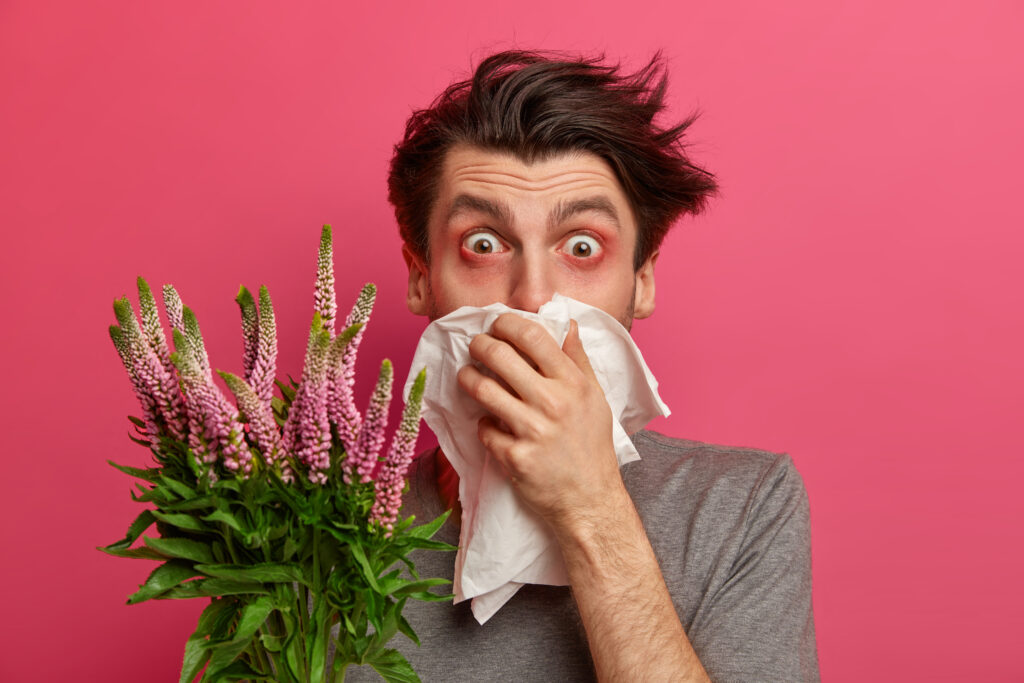Seasonal allergies can be a major inconvenience, causing symptoms like sneezing, runny nose, and itchy eyes. At Allergy123 Clinic, we recommend several strategies to manage these allergies effectively. Start by monitoring pollen counts and staying indoors on high-pollen days. Use air purifiers to reduce indoor allergens and wash your clothes and hair after spending time outside.
Monitor Pollen Counts
One of the first steps in managing seasonal allergies is to keep an eye on pollen counts. Various weather apps and websites provide daily updates on pollen levels in your area. On days when the pollen count is high, try to stay indoors as much as possible, especially during peak pollen times, typically mid-morning and early evening. If you must go outside, wearing a mask can help reduce the amount of pollen you breathe in.
Create an Allergy-Free Home Environment
Your home should be a sanctuary from allergens. Use air purifiers with HEPA filters to capture pollen and other allergens from the air. Keep windows closed during high pollen seasons to prevent outdoor allergens from entering. Regularly clean and vacuum your home, using a vacuum with a HEPA filter, to remove pollen that may have been tracked inside. Additionally, consider using allergy-proof covers on pillows and mattresses to reduce exposure to dust mites.
Personal Hygiene and Clothing
After spending time outdoors, it’s crucial to remove pollen from your body and clothes. Shower and wash your hair to remove pollen that has settled on your skin and hair. Change your clothes as soon as you come indoors and wash them promptly. This practice can significantly reduce your exposure to allergens and prevent them from spreading throughout your home.
Recent Posts
- Proper Airflow Management and Allergies
- How Allergies Can Control Your Life—And How Allergy123 Can Help You Reclaim I
- Climate Change is Making Allergies Worse
- How Allergy Testing and Treatment Can Improve Your Daily Life and Productivity
- How Allergy Testing and Treatment Can Help Your Kids in School and Sports
Over-the-counter antihistamines and nasal sprays can be effective in reducing allergy symptoms. Antihistamines work by blocking the action of histamine, a substance in the body that causes allergic symptoms. Nasal sprays help reduce inflammation and congestion in the nasal passages. For those seeking natural remedies, consider using saline nasal rinses to clear out pollen and allergens from your nasal passages. Local honey and herbal teas may also provide some relief.
For those with severe or persistent seasonal allergies, long-term treatment options such as immunotherapy may be beneficial. Immunotherapy involves gradually introducing small amounts of the allergen to build tolerance over time. This treatment can significantly reduce symptoms and improve your quality of life. At Allergy123 Clinic, our specialists can help determine if immunotherapy is right for you and create a personalized treatment plan.
Seasonal allergies don’t have to control your life. By taking proactive steps and utilizing the tips and tricks provided, you can manage your symptoms effectively and enjoy the beauty of each season. For more severe cases, professional help and long-term treatments like immunotherapy can offer significant relief. At Allergy123 Clinic, we are dedicated to helping you achieve a symptom-free life. Contact us today to learn more about our allergy management services.



